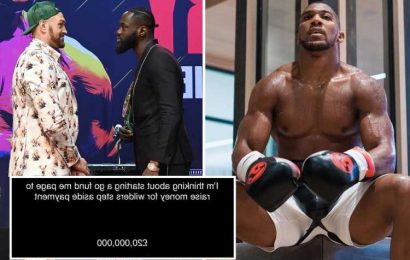Save articles for later
Add articles to your saved list and come back to them any time.
As the status of the 2026 Commonwealth Games, defaulted by Victoria, lies in limbo, former Australian Sports Commission chairman John Wylie is looking at an even bigger picture.
“The business environment of sport is becoming vastly more competitive and focused on the really big events,” he says. “Exposure drives revenues in the modern commercial world of sport. Olympic and Paralympic sports suffer from a lack of exposure generally.
Cathy Freeman, Ian Thorpe and Kieren Perkins all had breakthroughs at the Commonwealth Games.Credit: Archives
“Alcaraz and Djokovic play an amazing Wimbledon final, and the good thing is you know they’re on again next year [or even next month at the US Open]. A product where the athletes get exposure once every four years is not enough in the modern competitive commercial sports marketplace.
“So you can make a good argument to say that despite all the history, what should happen is that the Olympic Games should be every two years.”
Wylie’s view chimes with periodic calls for the soccer and cricket World Cups to be contested biennially. All attract what the beleaguered Commonwealth Games do not: fabulous sums in sponsorship and for their media rights so that they pay their own way. That makes it easier to justify less quantifiable, more esoteric benefits.
“In that environment, the Commonwealth Games wouldn’t have a future. It would become a shadow Olympics. It would be completely overtaken by the Olympics,” says Wylie. “And [that] would be a good thing for sports and athletes. That’s a rounded way of looking at it.”
The late Queen Elizabeth II chats with Australian swimmers Kylie Palmer and Ian Thorpe and the late 2006 Games chief Ron Walker in Melbourne.Credit: Rick Rycroft/AP Photo
Wylie is not death-riding the Commonwealth Games. He’s seen their upside – the way they act as a stepping stone for Australian athletes, the platform they give smaller nations and athletes, even from the so-called home countries of the UK, who would otherwise be invisible, the joy they bring – and he’s convinced the success of the 2018 Gold Coast Commonwealth Games clinched the 2032 Olympics for Brisbane.
But, shortening the lens, he and other movers and shakers are meditating on the questions posed by the shock cancellation of the Victoria 2026 Games. What’s the best format for the Commonwealth Games henceforth? Bigger, to broaden their appeal, or smaller to amortise costs?
Does it need more and newer sports for a younger audience, or fewer so the Games are not cheapened by novelty? In the eyes of critics, some new sports trivialise the Games; to others, they refresh them (in an effort to make the hosting the Games more appealing to more places, since 2021 the Commonwealth Games Federation has mandated only athletics and swimming).
Should there be one host at a time, or a hub and satellites? A permanent host city, a limited rotation of hosts or fresh fields?
The first question, though, is existential, and it is burning. Could the Commonwealth Games survive if the 2026 edition did not proceed?
Australian Commonwealth Games chief Craig Phillips dreads the idea. “I think it is difficult to miss a cycle,” he says. “The only time we have missed is because of a world war. I don’t think it is impossible, but it is difficult in a crowded sports calendar.
“That was why the IOC [International Olympic Committee] fought as hard as they did to get their [Tokyo] Games, albeit delayed by a year – because cancellation has that effect. I am confident the Commonwealth Games will happen somehow and somewhere – maybe at more than one place – just to make sure we still have it on the calendar. It’s just too important.”
Olympian Dave Culbert, a two-time Commonwealth Games silver medallist in long jump, sports administrator and commentator, shares Phillips’ fears. The 2030 Games, marking their centenary, are set down for Canada, but without a staging in 2026, he thinks there might not be enough momentum to get there.
Former ASC boss John Wylie says the Games will stuggle to survive in a crowded sporting market.Credit: Alex Ellinghausen; Supplied
“I can’t really see it coming back if it doesn’t go ahead in 2026,” Culbert says. “You never say never – how long was the gap between the ancient and modern Olympics? A thousand years plus? Anything is possible, but you have to say it’s unlikely.
“The centenary thing might be enough for it to happen [in Canada in 2030]. But the CGF [Commonwealth Games Federation] would be significantly financially wounded.”
Phillips and Culbert both say the Commonwealth Games are hobbled by misconceptions. One is that they are a poor man’s Olympics. Another is that they are a relic of the long-faded British Empire and its colonialism.
“An interesting thing about the Commonwealth is that it continues to grow. Nations that were never British colonies or part of the British Empire are joining,” Phillips says. African nations Togo and Gabon signed up earlier this year, making 56 countries in all. Of those more than 30 are republics.
“There is this notion of being old and quaint, but it’s moved on from that a bit,” Phillips says. “We got to gender parity on medals quicker than the Olympics did. There’s a whole lot of stuff around the Commonwealth Games which demonstrates that it is a bit more nimble. It moves forward a bit more quickly.
“The story of the Commonwealth isn’t about constitutional monarchies. It’s a story of nations that have a common goal, common set of values, common way of doing business, coming together. It’s not about tugging the forelock to the king.”
Far from propagating imperialism, the Commonwealth Games are in many places an agent of redress, Phillips says. Next month, Trinidad and Tobago will host the Youth Commonwealth Games.
“One of the reasons Trinidad and Tobago are hosting these Games is about dealing with the truth that they have around being a country based on descendants of slavery,” Phillips says. “The Commonwealth Games have been seen to be a really strong vehicle for that reconciliation to happen.”
Australia’s Ollie Hoare beat the world’s best at the Birmingham Commonwealth Games.Credit: Getty Images
Though the Commonwealth Games movement has been seemingly in slow and inexorable decline, it is hard to pinpoint when it began, because each new staging has been in itself outwardly a triumph, engaging the local population and rallying the host country. That was manifestly true of Gold Coast 2018 and Birmingham last year and would doubtless have been so for the now phantom 2026 Games in Victoria.
But some in the movement still feel that the late Ron Walker, chairman of the Melbourne 2006 organising committee, did the Commonwealth Games a disservice by running and spruiking those games like an Olympics.
It set the bar at a height no one will reach again – a running track was installed in the MCG, remember? – and it marginalised in people’s consciousness the strengths of the Commonwealth Games: their absence of Olympian pomposity, their human scale, the intimacy between fans and athletes, the affordable tickets.
In their modest regional redoubts, the now lost 2026 Games would have reaffirmed this. Besides, for many dot-on-the-map countries, especially in our region, the Commonwealth Games are the Olympics.
Of course, this domestic-sized aesthetic leaves the Commonwealth Games vulnerable to the commercial forces identified by Wylie, which see big sports and events continually squeezing out smaller counterparts. Now that money is the only driver, that cannot be helped and won’t change. Promoters naturally follow the money and the gloss, but so too aspiring young athletes.
Some more entrepreneurial administrators think Melbourne should be aiming to attract world championships of major sports one at a time, rather than bid for expensive and logistically complex multi-sports carnivals.
Culbert protests that the Commonwealth Games are judged and shunned by what they are not. “It’s not the Olympics. Don’t think it’s the Olympics,” he says. “It’s not an Olympic Games, but it is the next level down, just like any other regional games. Think Asian Cup football, European football championships.
“These events have a place. In our case, we don’t compete in Oceania that much, other than football and basketball. We are not in Asia. So the Commonwealth Games have their place. And Australians love it. We win a lot. It’s anthem practice. We get to sing the anthem, and people love it.”
Culbert, the athlete, also defends the often assailed athletic purity of the Commonwealth Games. The Commonwealth takes in the peerless nations of the Caribbean and the indefatigable distance champions of eastern Africa, he notes.
Kieren Perkins broke a world record at the 1990 Games on his way to swimming immortality. Cathy Freeman turned a corner with two gold medals at the 1994 Games in Victoria, Canada, and made an even more indelible mark by flying the Indigenous flag as she ran her victory laps.
Ian Thorpe made his gold medal-winning debut on the world stage at the 1998 Kuala Lumpur Games. All these Culbert can recite like the alphabet.
“[Cyclist] Anna Meares says she learned to win at the Commonwealth Games. She wouldn’t have won at the Olympics if she hadn’t competed at the Commonwealth Games,” Culbert adds.
It’s not just sepia tones. In Birmingham last year, when he won 1500 metres gold, Australia’s Ollie Hoare defeated two men who had been on the podium at the World Athletics Championships only two weeks earlier.
Yet for the Commonwealth Games, the Grim Reaper never seems far away, and never nearer than it has this week.
Most Viewed in Sport
From our partners
Source: Read Full Article











